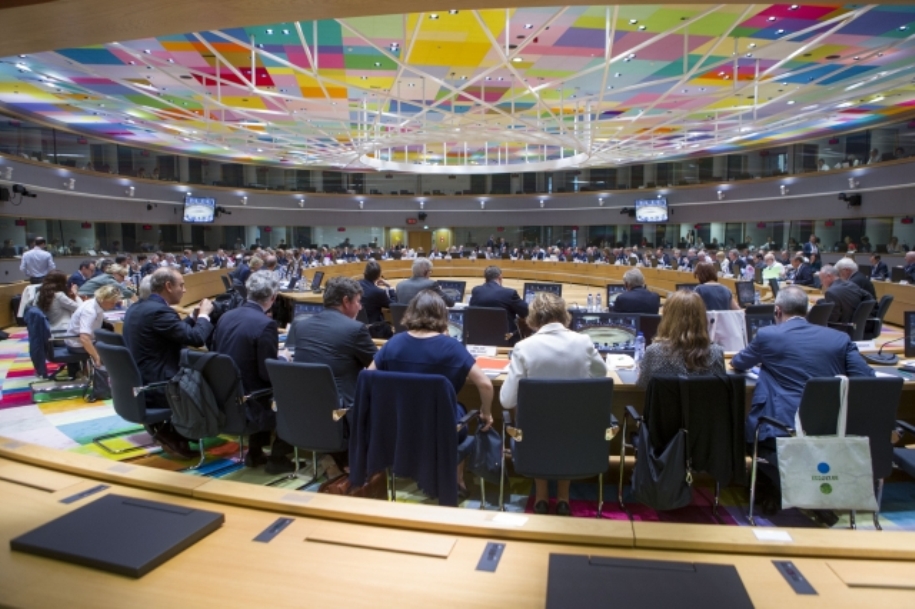LOC01:05
22:05 GMT
 The Foreign ministers of the 28-member European Union (EU) meeting
The Foreign ministers of the 28-member European Union (EU) meeting
BRUSSELS, July 17 (KUNA) -- The Foreign ministers of the 28-member European Union (EU) concluded their one-day meeting Monday evening after discussing the political situation in Libya, the North Korea crisis and migration.
They extended the mandate of the EU Border Assistance Mission in Libya (EUBAM) ,and introduced restrictions on the export of dinghies and outboard motors to Libya to combat illegal migration to Europe.
"We need unity of purpose, under the United Nations umbrella, to encourage the Libyan to unite themselves. The Libyans have enough resources to find their way out of the crisis. What we need is to help them, combining all efforts in support of the new UNSG Special Representative as he is about to take office" EU High Representative Federica Mogherini told a news conference after the meeting.
The foreign ministers also discussed migration, focusing on the situation in the Central Mediterranean Route, together with the UN High Commissioner for Refugees, Filippo Grandi, and the Director-General of the International Organisation for Migration William Lacy Swing.
On North Korea, Mogherini stressed that "there is no military solution in the Korean peninsula: denuclearisation must be achieved through peaceful means".
She underlined the leading role that South Korea has in this regard saying "solutions to tensions in the peninsula lie in the peninsula itself".
"We must find a path out of a crisis that threatens not only the non-proliferation regime but also security in Asia and worldwide," she added.
Meanwhile, the ministers had a discussion on the implementation of the EU Global Strategy. They agreed that the EU should continue strengthening its cooperation in security and defence, including through the future establishment of a permanent structured cooperation.
They stressed the importance of working on counter-terrorism as well as on countering hybrid threats.
They also agreed on two additional tracks for further work in 2017-2018: supporting global governance, in particular the United Nations, and supporting regional organisations and cooperative relationships across regions and with the EU. (end)
nk.msa